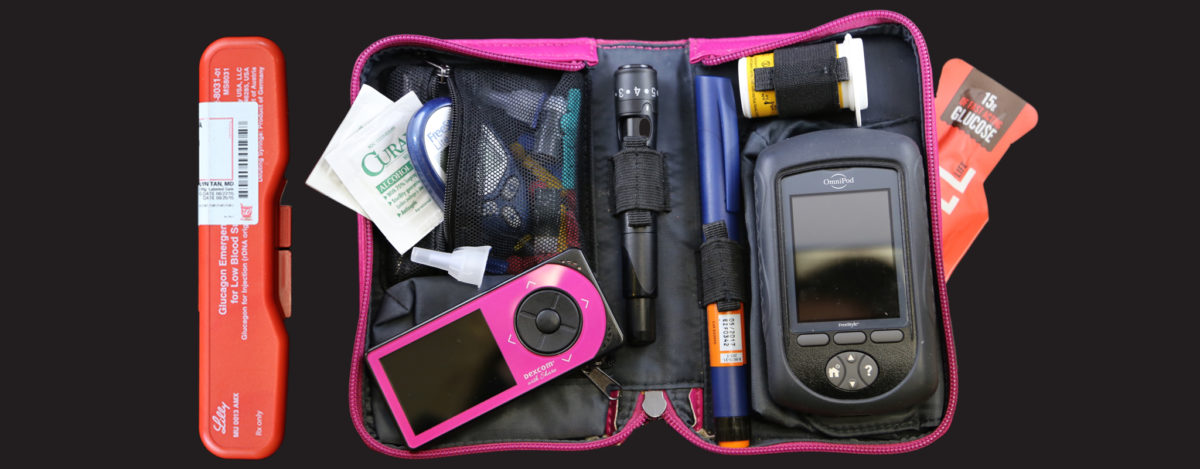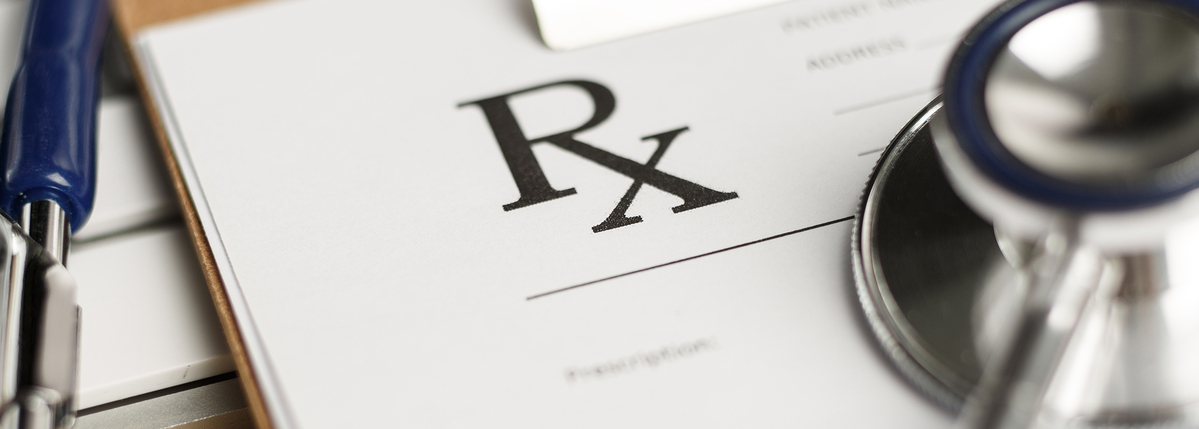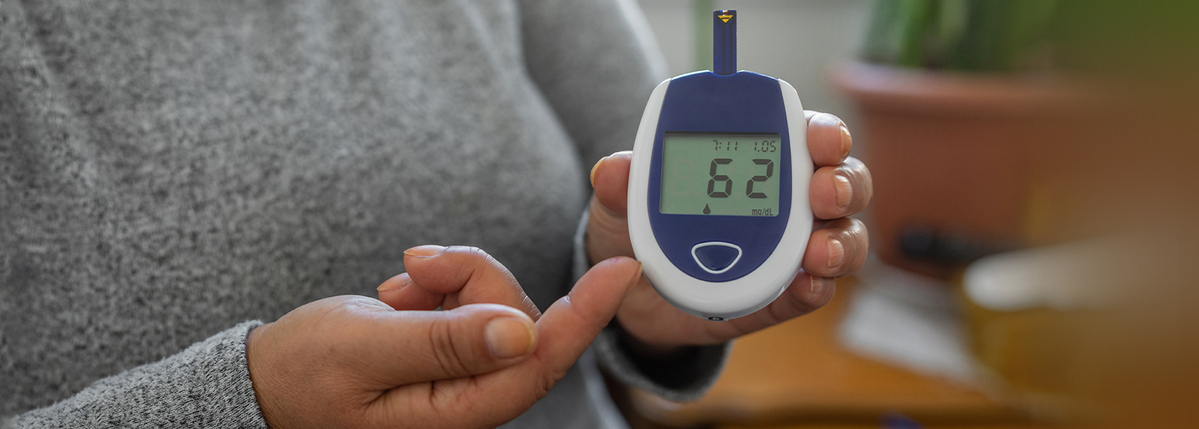Daily Diabetes Care Kit
Written by: Beyond Type 1 Editorial Team
3 minute read
December 3, 2015
The type 1 diabetes (T1D) Daily Kit is full of the everyday supplies that you need living day-to-day with type 1 diabetes. For emergency care tips, check out the Natural Disaster Emergency Kit. Your daily kit should be with you when you’re on the move.
Remember: Use any bag that is easy to identify, secure and has enough space to hold everything. You might want to consider getting a waterproof or insulated bag. It is a good idea to label your bag with name and medical ID as well as contact details. Consider getting a system like Tile to keep track of your bag and locate it in case it gets lost.

Blood Glucose Meter
The go-to device for testing your blood sugar levels.
Insulin
The ADA recommends packing a three-day supply. Include short-acting as well as long-acting insulin. When insulin is kept cool at the recommended temperature of 36° F-46° F, it will last until its expiration date. Unrefrigerated insulin can be stored at a temperature between 59°F-86°F and may be effective up to 28 days. Don’t forget to rotate supplies so that your kit does not contain expired products.
A Cooler (Optional)
Include four reusable ice packs to keep insulin cool (FRIO makes insulin pouches that cool when submerged in water). Never use insulin that has been frozen.
Syringes or Pen Needles
Both deliver insulin; it depends on what your instrument of choice is. If you are on a pump, you should carry emergency needles and insulin vials, or an emergency pen in case of failure. Also, carry extra syringes for mini glucagon shots.
Numbing Cream
This is to help soothe pump or continuous glucose monitor (CGM) site areas prior to insertion.
Alcohol Swabs
To clean skin surface before testing blood glucose or administering injection of insulin.
Bandaids/Medical Tape
Just in case you need to dress minor wounds or secure devices.
Lancing Device with Lancet
Device that contains lancet (small, sharp object) to prick skin for blood sample.
Containers
For disposing of used syringes, needles and lancets. An empty water bottle can do.
Test Strips
Item that collects your blood sample and then is inserted into your blood glucose meter for reading blood glucose levels.
Ketone Testing Products
This is for testing your urine for ketone, a chemical produced when there’s a shortage of insulin in your blood. The presence of ketone in the urine means the body is using body fat for energy instead of glucose because not enough insulin is available to use glucose. You can either use a ketone meter or strips.
Fast-acting Carbohydrate
For treating hypoglycemia, pack hard candy, fruit juice, regular soda, glucose tablets, or gels.
Glucagon Emergency Kit
Glucagon is a hormone medicine used in emergencies when a person with diabetes is experiencing severe hypoglycemia (low blood sugar) and cannot take sugar orally. It comes in several forms including a nasal spray, autoinjectors, prefilled syringes, or a powder that must be mixed with a liquid before injecting.
Medical Identification
Diabetes tag or medical bracelet that indicates that you are a person with type 1 diabetes.
Medical Details
A complete list of all medications you take and when you take them. Include any medication allergies. Also, list your physician and emergency contact information.
Want to be prepared for something big? Discover the ultimate “Natural Disaster Emergency Kit“.

Author
Beyond Type 1 Editorial Team
Beyond Type 1 is the largest diabetes org online, funding advocacy, education and cure research. Find industry news, inspirational stories and practical help. Join the 1M+ strong community and discover what it means to #LiveBeyond a diabetes diagnosis.
Related Resources

Editor’s note: This article discusses severe hypoglycemia and does not substitute for medical advice from...
Read more

If you take insulin as a person with type 2 diabetes, you can experience hypoglycemia—also...
Read more

Maria Ramirez was diagnosed with type 2 diabetes at 15 years old. Misdiagnosed with type...
Read more

